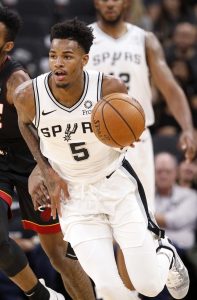While the NBA’s offseason trade market generally doesn’t officially swing into gear until after the NBA Finals end, teams can technically begin making deals after they’re eliminated from the playoffs. That means all 28 clubs that aren’t taking part in the Finals are eligible to make trades now, if they so choose — the Hawks and Nets agreed to the first one of the summer last week.
As teams weigh potential offseason trades, they’ll have to take into account a few groups of players whose trade eligibility – or lack thereof – may impact possible deals. While most players under contract through the summer are eligible to be moved, there are some exceptions. Here are the players who can’t be dealt for part or all of the offseason due to various trade rules:
Pending free agents
Players whose contracts will expire on June 30 can’t be traded prior to that date. Beginning in July, they can be moved in sign-and-trade deals, but those are rare. Once a 2019 free agent officially signs a new contract, he is ineligible to be traded until at least December 15, and perhaps even later than that if he meets certain criteria.
Player with options
Players who have team or player options for 2019/20 can’t be traded before those option decisions are made. In other words, a club can’t acquire a player with a team option in June, then decline that option before the end of the month as a way to create cap room.
However, a player who has an option year for ’19/20 on his contract technically can be traded, either before or after the new league year begins. As part of the deal though, his option would need to be exercised. That’s what happened a couple years ago with Chris Paul, for instance, when he was sent from Los Angeles to Houston.
So if the Heat want to explore trading Goran Dragic this summer, for instance, they’d have to rely on him exercising his player option for next season. If he turns down that option, he can’t be moved prior to June 30, and could only be moved in a sign-and-trade in July, significantly reducing the odds of a deal.
Recently signed players
The NBA’s Collective Bargaining Agreement doesn’t allow a team to trade a player within three months of signing him. So a player who signed with a team on March 14 still isn’t eligible to be dealt, as of today. Here are the players who signed multiyear contracts near the end of the 2018/19 season and aren’t yet eligible to be traded, along with dates representing the end of their three-month windows:
- Cameron Reynolds, Timberwolves (June 19)
- Jimmer Fredette, Suns (June 22)
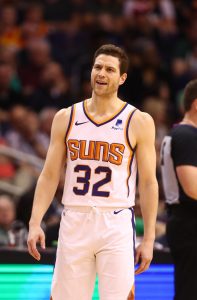
- Note: Fredette has a team option on his contract, so he’d only become trade-eligible if that option is exercised.
- Chris Chiozza, Rockets (June 23)
- Walt Lemon Jr., Bulls (June 29)
- B.J. Johnson, Kings (July 1)
- Jemerrio Jones, Lakers (July 1)
- Billy Garrett, Knicks (July 2)
- Note: Garrett has a team option on his contract, so he’d only become trade-eligible if that option is exercised.
- Michael Frazier, Rockets (July 6)
- Yante Maten, Heat (July 7)
- Jordan McRae, Wizards (July 9)
- Tarik Phillip, Wizards (July 9)
- Duncan Robinson, Heat (July 9)
- Kendrick Nunn, Heat (July 10)
Players who sign Designated Veteran Extensions
Rookie scale extensions and standard veteran extensions impose some trade restrictions on players, but the Designated Veteran Extension takes those restrictions to another level by preventing its recipients from being traded for one full calendar year. That means anyone who signs such a deal this summer – say, Trail Blazers star Damian Lillard – wouldn’t be able to be traded for 12 months.
Besides Lillard, Anthony Davis (Pelicans) and Kemba Walker (Hornets) are also eligible for super-max contracts with their respective teams this offseason and would be ineligible to be traded for a full year if they sign them.
Waiver claims
Players who are claimed off waivers during the offseason can’t be traded until the 30th day of the following season. That means a team claiming a player off waivers this summer won’t be eligible to trade that player until mid-November.
Update: This restriction won’t apply Deyonta Davis, who was claimed off waivers from Atlanta by the Rockets on Wednesday. Even though Houston’s season is over, the league’s offseason doesn’t technically begin until after the NBA Finals ends, as cap expert Albert Nahmad clarifies (via Twitter). Davis will become trade-eligible on July 12, 30 days after he was claimed. A player claimed off waivers after the Finals end won’t be eligible to be moved until November.
Recently signed draftees
Recently drafted players are often dealt on draft night before they’ve officially signed their first NBA contracts, since there are no restrictions limiting a team’s ability to trade a player’s draft rights. However, once the player officially signs his rookie contract, he can’t be moved for a full month (30 days).
Photo courtesy of USA Today Sports Images.
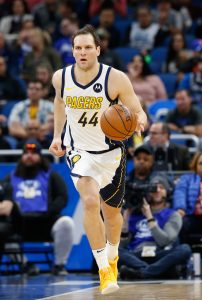
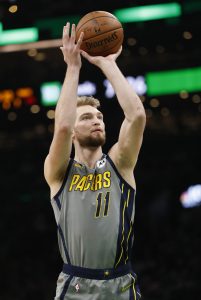
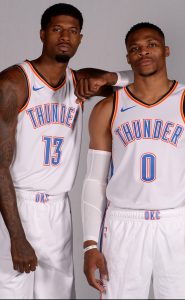
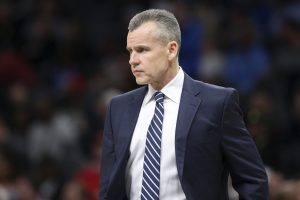
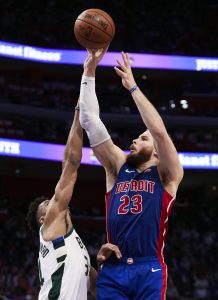 Griffin has given the franchise the star power it has sorely lacked for many years. He has reshaped his game over the years, turning himself into a stretch four, ballhandler and playmaker. Moreover, concerns over how Griffin would handle the switch from Los Angeles to snowy Detroit have evaporated. He’s become the clear team leader and spokesman while endearing himself to teammates, coaches and staff members with his work ethic and professionalism.
Griffin has given the franchise the star power it has sorely lacked for many years. He has reshaped his game over the years, turning himself into a stretch four, ballhandler and playmaker. Moreover, concerns over how Griffin would handle the switch from Los Angeles to snowy Detroit have evaporated. He’s become the clear team leader and spokesman while endearing himself to teammates, coaches and staff members with his work ethic and professionalism.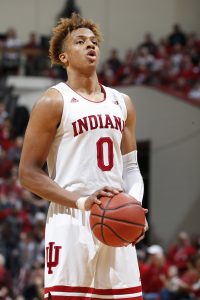 The general feeling around the organization is that the Pistons will target a wing with their pick, which is just outside the lottery, but the team may ultimately utilize the “best player available” strategy at that spot.
The general feeling around the organization is that the Pistons will target a wing with their pick, which is just outside the lottery, but the team may ultimately utilize the “best player available” strategy at that spot.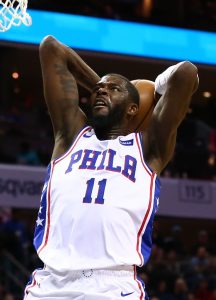
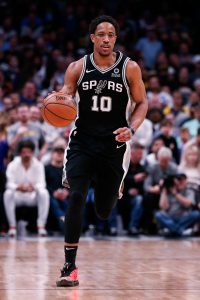 As noted above, the Spurs generally don’t head into offseasons – or trade deadlines – looking to shake up their roster with deals involving core players. Assuming they continue to operate that way, we can probably count on seeing a 2019/20 team that looks pretty similar to the 2018/19 squad, with San Antonio aiming to take a step forward by betting on
As noted above, the Spurs generally don’t head into offseasons – or trade deadlines – looking to shake up their roster with deals involving core players. Assuming they continue to operate that way, we can probably count on seeing a 2019/20 team that looks pretty similar to the 2018/19 squad, with San Antonio aiming to take a step forward by betting on 